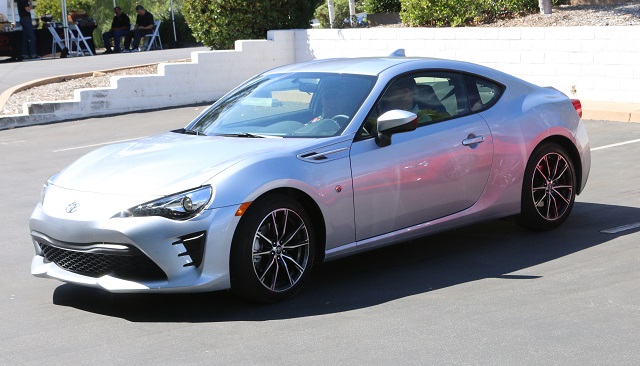
If you’re shopping for car insurance, you’ve likely noticed that your rates can vary widely. The differences are most noticeable between different plans and insurers. However, there are many other factors that impact your premium.
To learn about all of the various factors that car insurance companies consider when creating your rate, keep reading below. Understanding which factors play a role in your pricing can help you make the right choice if you’re trying to reduce your rate.
Demographics and Personal Characteristics
Car insurance companies factor in many of your personal characteristics when creating a rate. While these data points may seem arbitrary, they are created from data that auto insurance companies keep track of.
At the end of the day, insurance companies are businesses that make money and they charge drivers with the greatest risk of getting into an accident more than drivers who carry less risk.
However, different companies place a greater weight on certain factors than others. As a result, you’ll get different rates at different insurers.
Below, we outline the various personal factors that go into the algorithms used by car insurance companies to generate your rate.
Age
Age is one of the biggest considerations among auto insurers and most states allow insurance companies to use this factor in their algorithms.
In short, the youngest and oldest drivers have the highest premiums—anyone younger than 25 and those 65 and older. However, the youngest drivers do have the highest rates at nearly twice the cost of all other drives.
There’s not much you can do about this factor except to maybe hold off on getting your 16-year-old a car until they’re 25, but that’s not always practical.
Gender
Not all states permit insurance companies to charge drivers of different genders different insurance rates. Insurers that are allowed to do this though typically charge young males and older females a higher premium.
Marital Status
This factor might seem arbitrary, but according to insurance data, married drivers are less likely to file a claim than drivers who are single, divorced, or widowed. As a result, you’re likely to get a lower insurance premium if you’re married.
Your Address
Where you live gives insurance companies an idea of how likely you are to get into an accident, how likely your car is to be wrecked, or file a claim for other types of vehicle damage. In cities that are filled with traffic, high populations, and frequent accidents, you are likely to be charged more.
However, if you live in a rural area with few drivers and a low occurrence of accidents, vandalism, or severe weather, you’ll likely secure a lower rate.
Credit History
Your credit history gives insurance companies an idea of how reliable you are with making payments. Not all states allow auto insurers to use credit when determining premium rates. However, this is allowed in many states and many insurance companies even base the rates they assign largely on credit scores.
Your Vehicle
The car you drive is another huge consideration by auto insurers when they generate your rate. Basically, certain vehicles are costlier to insure.
This can be a good thing though because armed with this information, you can choose a vehicle that is viewed favorably by insurance companies. Thus, you can ensure a lower premium.
Type of Car
Car insurance companies have data on all types of cars and how often drivers of these vehicles file claims. They also consider factors like repairs cost and safety ratings when determining how much the type of car you drive will affect your rate.
Trim Level
Higher trim levels not only cost more to buy at a dealership, but they also cost more to insure. That’s because higher trim levels usually come with advanced features, premium materials, and unique components. If any of these get damaged, they will cost more to repair or replace than those of a lower trim level.
Safety Features
Safety features can either help you or hurt you depending on other factors like your car make and trim level. High safety scores and certain safety features can help to reduce your premium as they can reduce the likelihood of an accident. However, certain high-tech features can be pricey to repair and thus, might increase your rates.
Your Insurance Choices
You have the most control over this category of factors because you can easily shop around various companies and compare their options and rates. Plus, you can ask for discounts and opt to bundle insurance coverage.
Insurance Company
Depending on where you live, different auto insurances will be more affordable. One that charges high premiums in your area might off the cheapest rates in another area. For this reason, it’s important to shop around before making your final choice.
Previous Insurance
This factor primarily applies to drivers who are switching from a non-standard insurance company such as one that covers high-risk drivers. You will likely be charged higher by larger insurance companies if you are switching from such a policy or insurer.
Amount of Coverage
This is a little more obvious as greater levels of coverage come with a higher price tag. For instance, basic liability coverage will be cheaper than full coverage. In fact, full coverage plans can cost twice as much as minimum coverage.
Deductible
In general, if you opt for a higher deductible, your premium will be lower than if you choose a lower deductible.
A deductible is an amount that your insurer will deduct from your claim. Basically, it’s the amount that you will be responsible for in the event of an accident or other circumstance in which you file a claim.
Discounts
Qualifying for discounts will help to reduce your premium. You might automatically qualify for a discount if you bundle certain policies together, sign during a special period, or pay for your insurance in full.
Car insurance rates feel like a conundrum at the best of times. Fortunately, you now have a better understanding of how your rate is generated and about the factors that you have control over.
Tags: car insurance


